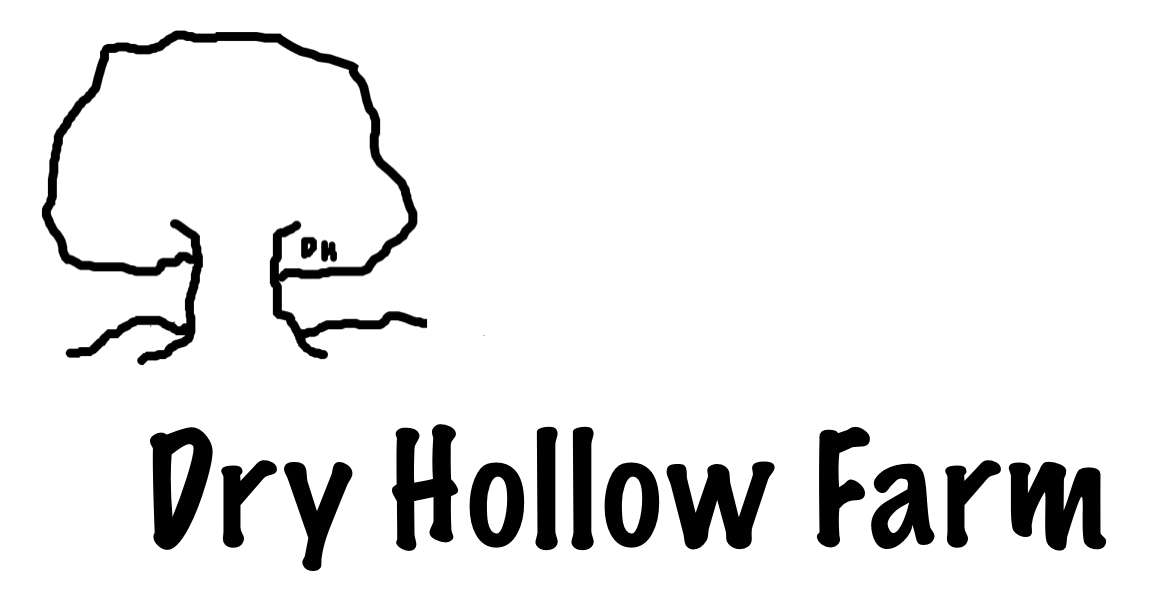How We Fight for Our Ladies
In an earlier post, we discussed the human tendency to personalize animal behavior through anthropomorphism - the assigning of human traits to non-human beings. The tendency of many farm visitors is to label our critters as either “sweet, friendly, and loving” or “mean, greedy, and unkind.” These are primarily human traits assigned to animals who are, at the end of the day, just animals.
The severest criticisms are always leveled against our fellows - the male dogs, bucks, rams, and roosters, who are simply exhibiting typical male animal behaviors.
No matter the breed or species, an intact male has one primary life goal - to breed females. All exhibited behaviors emanate from this drive, and male behavior patterns should govern a livestock owner’s decisions regarding feeding, housing, and pasturing.
We’ve watched rams head-butt a metal gate or barn door until their horns break or the barriers are destroyed.
We’ve watched bucks brutally push every other member of the herd away from a feed trough so they could get their more-than-fair share first.
We’ve watched free-range roosters square off to lay claim to specific hens.
We’ve watched a Great Pyrenees male snarl and attack his best-friend, fixed-male compatriot when a nearby female was in heat.
We’ve discovered a male buck in the doe goat pasture after he spent the night finding a way to escape one pasture, then found another way to enter the prohibited one.
None of these animals are “mean” or “hateful”. Their breeding hormones make them behave aggressively and turn them into escape artists, much to our consternation and frustration. It’s just the way things are.
At Dry Hollow Farm, we are committed to livestock breeding. For this reason, we must create a safe and timely environment for all of our animals, whether intact males, females, or wethers. Over the past decade, we have learned five important lessons when handling male breeders on our farm.
#1 Except for roosters, we only house one intact adult male of any species. If we have a second male for future breeding purposes, they are raised in pastures separated by space in addition to fencing or gates. Think this through before buying animals, choosing which animals to keep after a lambing or kidding season, and when laying out fencing. You cannot keep two intact males in the same pasture or adjacent pastures. They will tear down fencing and mangle gates to get at one another.
#2 No matter how cute that newborn pup, goat kid, or lamb may be, they will grow up to be an aggressive intact male. There are no exceptions. Unless we have need of a future breeder, we sell every male born on the farm. To ensure genetic diversity, we buy a new buck or ram from another bloodline and sell ours after two or three years of breeding.
#3 If for some reason we do have multiple males on the farm, we let them fight it out to establish dominance. Because we have free-range chickens and hens give birth to multiple clutches in a year, we have several roosters who roam throughout the day. They each have their own little flock of hens to watch over and mate with. If one group comes too close to another, the roosters will stage a short-lived scuffle. We do not intervene.
#4 If the male engages in frustrating behavior, think through his reasoning then address the situation accordingly. He needs food to keep up his strength for breeding successive females. His drive to “get to a female” is overwhelming and cannot be obstructed. He will fight to the death for control over the territory his females inhabit. He will attack every other intact male to prove his dominance and breeding prowess.
And #5, goat milk soap removes the scent of a buck in rut from your skin! However, after a decade a raising goats, we rarely notice it anymore …
Dr. Kathryn Bush owns and operates Dry Hollow Farm, a working goat and sheep farm in Huntingdon, Tennessee. Together with her husband, Russell, she creates skincare products from their fresh goat milk, grows organic herbs, welcomes visitors to their two cabins on the farm (available for stays through Airbnb), keeps the farm’s on-site soap shop stocked with their handcrafted products, and enjoys working the farm in company with their Great Pyrenees dogs (who work hard guarding the animals). Check out their natural products featuring farm-grown ingredients here, and sign up for the Dry Hollow Farm newsletter to stay in touch and be the first to hear about farm news, events, and new products.

